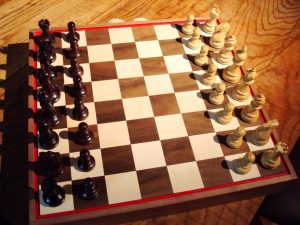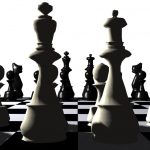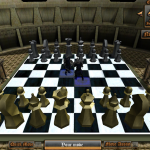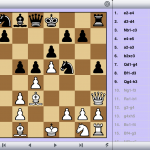Board games and chess have long been celebrated for their intellectually stimulating nature, captivating players with a penchant for mental challenges. These games, transcending mere entertainment, offer a fertile ground for mental exercise, engaging players in a complex dance of strategy, foresight, and wit – they became so popular that now we even have platforms where we can explore promo codes like the monopoly casino promo code, to make the gaming experience even more fun!
Chess: A Benchmark for Cognitive Skills
Chess demands a remarkable array of cognitive skills from its players, including logical reasoning, pattern recognition, strategic planning, and spatial awareness. This classic game has been the subject of numerous studies, highlighting its role in sharpening the mind and enhancing mental faculties through its intricate gameplay and the need for anticipatory thinking.
Board Games: Diverse Arenas for Mental Exercise
Venturing beyond chess, various board games such as Settlers of Catan, Carcassonne, and Ticket to Ride, present similar cognitive demands. These games, with their unique rules and strategic complexities, engage players in deep cognitive processing, challenging them to think critically, solve problems, and devise long-term strategies.
Common Cognitive Threads
Chess and board games share core elements that stimulate the brain, including the necessity for forward thinking, predicting opponents’ moves, and balancing risks and rewards. Both types of games compel players to adapt their strategies in response to dynamic game states, thereby honing their ability to analyze multiple variables and make informed decisions.
Beyond Strategy: The Multifaceted Cognitive Benefits
Playing board games, akin to chess, fosters not only strategic thinking but also critical problem-solving skills and decision-making abilities. Players learn to evaluate various outcomes, consider the long-term consequences of their actions, and develop a heightened level of cognitive flexibility. These games serve as a mental gym, where the brain is trained to process complex information and navigate through intricate problem spaces.
The Social Dimension of Board Gaming
Unlike the often solitary game of chess, board games inherently promote social interaction, offering additional cognitive benefits. Through face-to-face engagement, players enhance their communication skills, learn the art of negotiation, and develop valuable interpersonal skills, all while enjoying the company of friends and family.
Scientific Validation of Board Games’ Cognitive Benefits
Research supports the cognitive benefits of playing board games, with studies showing improvements in memory, attention span, and cognitive flexibility. These findings underscore the significant role board games can play in cognitive development and maintenance, suggesting that regular engagement can lead to lasting mental health benefits.
Anecdotal Evidence
Anecdotes and personal experiences further illustrate how board games can sharpen the mind and apply these cognitive skills in real-life scenarios. From critical thinking in professional settings to strategic planning in daily life, the cognitive abilities honed through board games have wide-ranging applications, enhancing one’s ability to navigate the complexities of the real world.
Conclusion: A Meeting of Minds
In summary, both chess and board games offer more than just entertainment; they provide a rigorous mental workout that stimulates cognitive growth and development. By challenging players to think strategically, solve problems, and adapt to new situations, these games foster a range of cognitive skills that are beneficial both on and off the board. Whether through the strategic depth of chess or the diverse challenges of modern board games, players can enjoy a rich and rewarding mental exercise that promotes personal growth and cognitive health.






